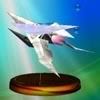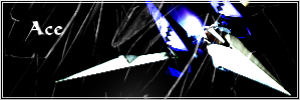Post by ilikegreen on Jul 15, 2010 18:41:14 GMT -8
I had to read this for the university I will be attending in the fall. It's a scientific book, but It references politics and culture and whatnot and all their effects on the food supply and biodiversity of wheat species.
The point that hit me hardest is that the world is moving towards a "monoculture" (using one specific species of wheat for everything) in wheat. This is bad because if a bug (rust, fungus, blight) comes by that just so happens to like to kill said species, we're screwed, because the entire world is using the same stuff and it'll be hard (understatement of the century) to find a replacement. For example, the bananas that we ate in the 80s are not the same bananas we eat today, a near monoculture was achieved and a disease nearly killed all the bananas on the planet. Of course, no one really ever hears about these things, because quick moving scientists had a different species saved in their gene bank for just such an emergency.
The main person in this book was Bent Skovmand, a Scandanavian that worked at an organization in Mexico that collected samples from wheat species (many we would consider weeds) and re bred these to ensure biodiversity was maintained. There is so much about wheat in general that I just didn't know. So many things that make one kind of wheat as valuable as gold in one region and more worthless than dirt in others. I didn't know there was such thing as winter wheat and summer wheat, or that the wheat used in bread and the wheat used in noodles were different.
I could talk for ages on the subject and only scratched the surface of the book, but overall it was a great read, and the "science" stuff didn't go over my head but once or twice, and even then I was able to garner the gist of what it was saying.
The book is called The Viking in the Wheat Field by Susan Dworkin if you want to read it. It's fascinating once you get into it.
The point that hit me hardest is that the world is moving towards a "monoculture" (using one specific species of wheat for everything) in wheat. This is bad because if a bug (rust, fungus, blight) comes by that just so happens to like to kill said species, we're screwed, because the entire world is using the same stuff and it'll be hard (understatement of the century) to find a replacement. For example, the bananas that we ate in the 80s are not the same bananas we eat today, a near monoculture was achieved and a disease nearly killed all the bananas on the planet. Of course, no one really ever hears about these things, because quick moving scientists had a different species saved in their gene bank for just such an emergency.
The main person in this book was Bent Skovmand, a Scandanavian that worked at an organization in Mexico that collected samples from wheat species (many we would consider weeds) and re bred these to ensure biodiversity was maintained. There is so much about wheat in general that I just didn't know. So many things that make one kind of wheat as valuable as gold in one region and more worthless than dirt in others. I didn't know there was such thing as winter wheat and summer wheat, or that the wheat used in bread and the wheat used in noodles were different.
I could talk for ages on the subject and only scratched the surface of the book, but overall it was a great read, and the "science" stuff didn't go over my head but once or twice, and even then I was able to garner the gist of what it was saying.
The book is called The Viking in the Wheat Field by Susan Dworkin if you want to read it. It's fascinating once you get into it.














